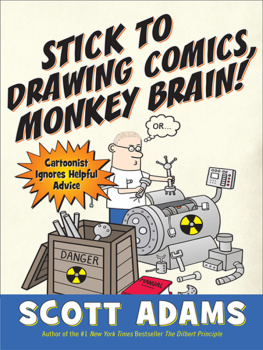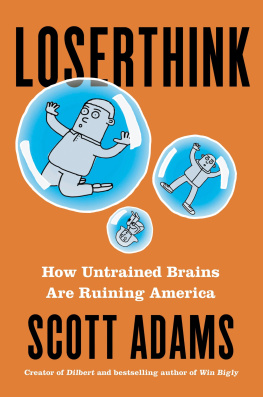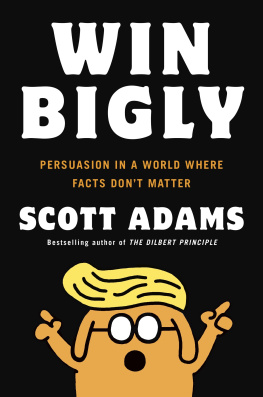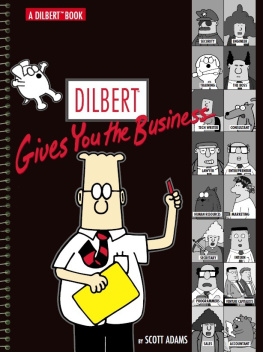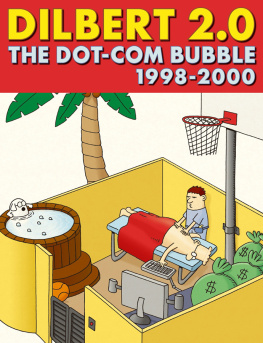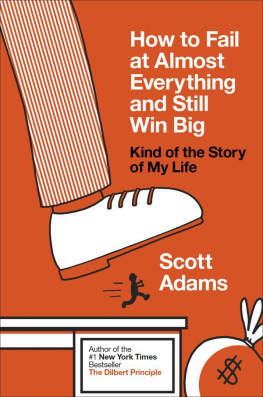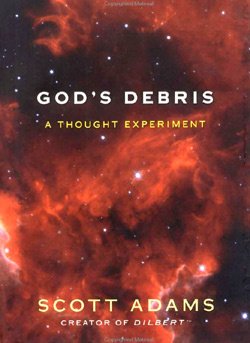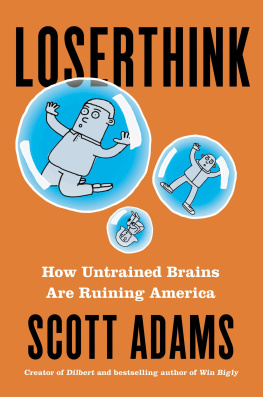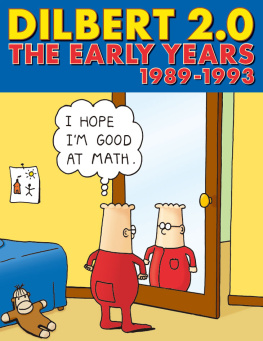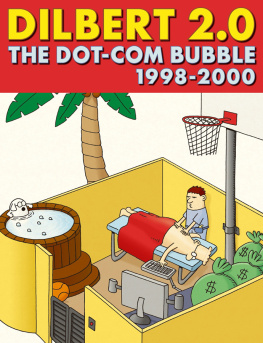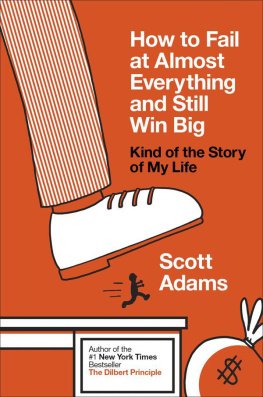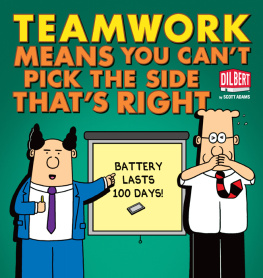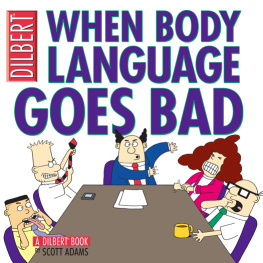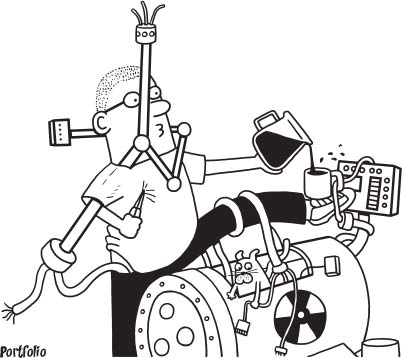SCOTT ADAMS
S TICK TO D RAWING C OMICS , M ONKEY B RAIN !
Cartoonist Ignores Helpful Advice
PORTFOLIO
Published by the Penguin Group
Penguin Group (USA) Inc., 375 Hudson Street, New York, New York 10014, U.S.A.
Penguin Group (Canada), 90 Eglinton Avenue East, Suite 700, Toronto, Ontario, Canada M4P 2Y3 (a division of Pearson Penguin Canada Inc.)
Penguin Books Ltd, 80 Strand, London WC2R 0RL, England
Penguin Ireland, 25 St Stephens Green, Dublin 2, Ireland (a division of Penguin Books Ltd) Penguin Books Australia Ltd, 250 Camberwell Road, Camberwell, Victoria 3124, Australia (a division of Pearson Australia Group Pty Ltd)
Penguin Books India Pvt Ltd, 11 Community Centre, Panchsheel Park, New Delhi 110 017, India Penguin Group (NZ), 67 Apollo Drive, Rosedale, North Shore 0632, New Zealand (a division of Pearson New Zealand Ltd)
Penguin Books (South Africa) (Pty) Ltd, 24 Sturdee Avenue, Rosebank, Johannesburg 2196, South Africa
Penguin Books Ltd, Registered Offices: 80 Strand, London WC2R 0RL, England
First published in 2007 by Portfolio, a member of Penguin Group (USA) Inc.
Copyright Scott Adams, Inc., 2007. All rights reserved
Scott Adamss comic strips are distributed by United Features Syndicate.
LIBRARY OF CONGRESS CATALOGING-IN-PUBLICATION DATA Adams, Scott, 1957
Stick to drawing comics, monkey brain!: cartoonist ignores helpful advice / Scott Adams.
p. cm.
ISBN: 978-1-1012-1650-7
Adams, Scott, 1957 2. CartoonistsUnited StatesBiography. I. Title.
PN6727.A3A3 2007
741.5'6973dc22 2007017177
Without limiting the rights under copyright reserved above, no part of this publication may be reproduced, stored in or introduced into a retrieval system, or transmitted, in any form or by any means (electronic, mechanical, photocopying, recording, or otherwise), without the prior written permission of both the copyright owner and the above publisher of this book.
The scanning, uploading, and distribution of this book via the Internet or via any other means without the permission of the publisher is illegal and punishable by law. Please purchase only authorized electronic editions and do not participate in or encourage electronic piracy of copyrightable materials. Your support of the authors rights is appreciated.
For Shelly, Savannah, and Justin
Contents
Stick to Drawing Comics,
Monkey Brain!
Introduction
Y ou might be wondering why I wrote a non-Dilbert book. The answer requires some explaining.
First, allow me to confess that I have failed at 90 percent of the things I have ever attempted. Failure rarely bothers me. I always learn something in the process, and the screwups provide a nice backdrop of humility for the few times when things work out. To understand my reasons for writing a non-Dilbert bookother and beyond my natural impulse to create new thingsI need to take you back in time.
In a way, this book started when I was a kid. I was about nine years old when I told my mother I planned to win an art contest that was advertised on the back of a cereal box. If my drawing of the famous geyser Old Faithful were judged one of the best, Id win a prize. Mom tried to explain just how many people would enter a contest like that, presumably so I wouldnt be disappointed when I didnt win. I understood the odds, but I was sure I was going to win anyway, so I sketched my picture and sent it in.
I won a camera.
When I was eleven years old, I was certain I would find the Golden Egg at the annual Easter Egg Hunt in my town. Imagine a field full of hidden eggs, the area is covered with kids looking for those eggs, and only one egg is the golden one. Against all odds, I was sure I would be the one to find it.
Later that week, my picture was on the front page of our local papers. Scott Adams Finds Golden Egg.
It was about that same time when I first heard the word valedictorian. I was surprised to learn that there was an actual name for the best student in the graduating class. I decided to become one of those. How hard could it be?
In 1975 I graduated as valedictorian.
I recall one day in eighth-grade science class when the teacher was giving the answers to some standardized tests we were taking for practice. I raised my hand and pointed out that his answer was wrong. I argued that he was misinterpreting the question. This didnt seem likely to him, given that he was a professional science teacher and I was fourteen. But to humor me, he agreed to go back to the source and check.
I was right. He had misinterpreted the question.
On my first day at Hartwick College I met a large muscular guy named Bob near the communal mailboxes. He was in his early twenties, returning to college to finish his degree. In the course of conversation I discovered that we both played tennis, so we set up a match. He spouted something about being the top player at his previous college and how he would mop the court with me. I had never taken a tennis lesson, but I played often and usually won, so I assured him that he would be annihilated. (Yeah, I was like that.)
He turned out to be the better player by far, but he had a bad day, and I won. He was both surprised and displeased, or at least thats my interpretation of why he smashed his racket to bits in front of me after match point. A few months later he became the top player on the college team. (I never beat him again.)
During my corporate career I attended a mandatory class on problem solving. The first exercise involved a case study that was selected because there were so many factors to consider. Our job was to use the tools they taught us and weed out the unimportant factors until we found the root problem. We were assured that this process would take quite a while, and some groups might never solve it.
I read the case and identified the root problem on the first pass. It was the sort of solution where once you saw it, you knew it was right. The instructor accused me of cheating because he had been teaching the course for years and no one had ever solved the problem just by reading it.
I remember telling my friends and family that I was going to submit some comics to become a syndicated cartoonist. I dont remember even one person predicting I would succeed. Thousands of wannabes submit comics for syndication every year and only a few get contracts. And most of those comics fizzle after a few years. My entire art experience included frequent doodling plus getting the well-deserved lowest grade in art class in college. That was my total preparation for my new career.
I sent my samples to several comic syndication companies. One syndicate helpfully suggested that I find an actual artist to do the drawing for me. United Media had lower standards and offered me a contract for Dilbert. That turned out to be a good move on their part.
When Dilbert was only in about fifty newspapers, and I still had my day job, I got a call from a meeting organizer in Calgary asking if I wanted to give a speechpreferably a funny oneto a bunch of engineers. I had spoken to small groups before, generally at my day job. And I had taken the Dale Carnegie course, but that only involved giving speeches to my forty classmates. It was a long way from stand-up comedy in Canada. But they offered to pay me $5,000 U.S., which got my attention. I figured the worst that could happen was I would embarrass myself in Canada.

